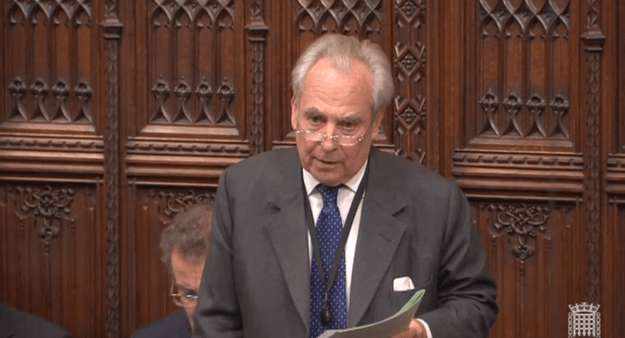UKIP former leader criticised for suggesting reading Bible in public may be illegal
A UKIP peer has been heavily criticised for asking if it will be illegal to read the Bible out loud in public.
Lord Pearson of Rannoch, former leader of the UK Independence Party, submitted a question in the House of Lords asking if Christians are at risk of committing a hate-crime against Muslims by "preaching the divinity of Christ or by reading aloud sections of the Bible in public".
The peer praised Cameron as "brave" for saying Jesus was the only son of God, because "this will not have gone down all that well with the Islamists".

In response, Home Office minister Lord Ahmad of Wimbledon rebuked him saying: "Bigotry has no place and any kind of hate, be it based on race, sexual orientation or religion, has no place in British society."
He assured Pearson free speech would be protected and added: "Muslims also regard and revere the Prophet Jesus as a prophet of God."
Pearson also received flak from the Bishop of Worcester who said comments phrased in this manner were "not conducive to building positive relations between faith communities, in particular with Muslim communities, as we are endeavouring to do in the Church at a time when Muslims are feeling unfairly stigmatised".
He added: "Muslims, and people of all faiths, greatly enrich our society and make a significant contribution to the common good."
It is not the first time Lord Pearson has caused controversy with comments about Islam. In 2014 he was reported to the speaker of the Lords for suggesting the Qu'ran had inspired the murder of Drummer Lee Rigby on the streets of London.
Pearson made the comments yesterday in a debate on the government's anti-extremism strategy in the House of Lords. The debate coincided with Holocaust Memorial Day and the release of new research showing hate crime in the UK had soared.
Over a quarter of those questioned had witnessed a form of hate crime in the UK, with a fifth having seen abuse on the basis of religion.











